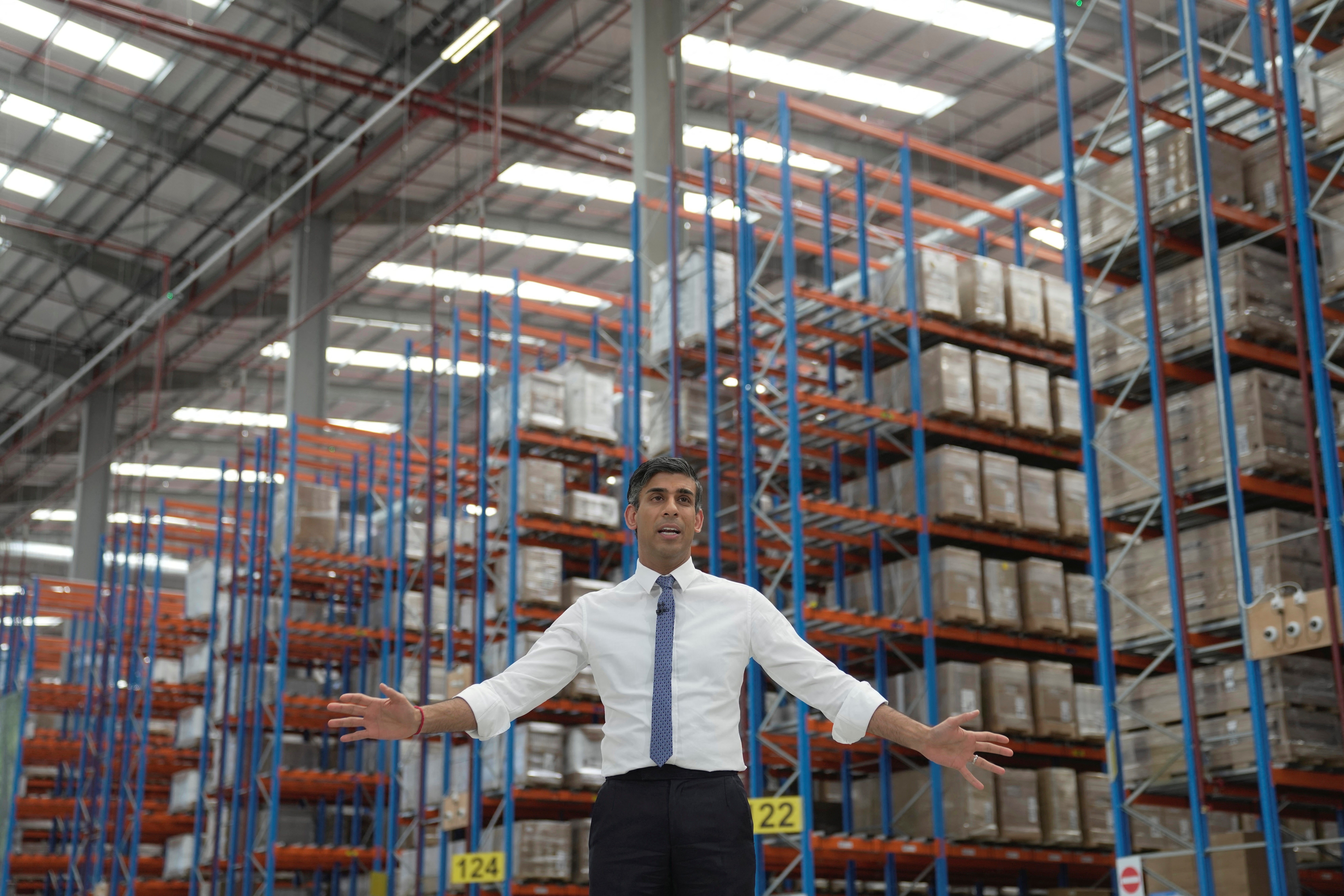After this interest rate rise, Rishi Sunak sounded like a man who had gambled and lost
The prime minister must stop pretending he can control inflation and accept that the situation is serious

It is surprising that Rishi Sunak, one of the most economically literate of prime ministers, has got himself into such a muddle. He cannot seem to decide whether responsibility for getting inflation down lies with him or with the Bank of England.
Having promised at the start of this year to halve inflation by the end of it, the prime minister now gives the appearance of wanting to blame anyone but himself for the stubbornness of high inflation and the possibility that he will miss his target.
After the Bank’s Monetary Policy Committee voted to raise the interest rate by half a percentage point rather than the more usual quarter-point, Mr Sunak said on a visit to an Ikea factory in Kent: “I support the Bank of England in what they are doing.” He also pointed out that many other countries are grappling with similar problems.
But there can be little doubt that the prime minister privately believes that interest rates should have started rising last year earlier than they did. Mark Harper, the transport secretary, said the quiet part out loud this week when he criticised the Bank for acting too slowly. He meant to praise his boss rather than to do down the Bank, because Mr Sunak as chancellor was warning of the wolf of inflation long before the Old Lady of Threadneedle Street awoke to the danger.
Mr Sunak has been vindicated. Putting up interest rates by more than expected now is not boldness but an admission that the Bank should have acted earlier. And yet it is the prime minister who will be blamed for the greater and longer-lasting pain that homeowners will suffer.
In part, this is his own fault for having muddied the waters of accountability with his promise to halve inflation this year – a pledge that implied that such an objective was within the power of government to deliver. There may have been some truth in that claim last year when the government announced its huge subsidies for energy bills. This had a direct effect on prices, keeping them lower than they would have been, but it was never possible to continue or to increase such direct intervention indefinitely. Thus Jeremy Hunt and Mr Sunak were right to reject appeals to subsidise mortgage payers reaching the end of fixed-rate deals – and Rachel Reeves was right as a chancellor-in-waiting to take the same approach.
But most of the causes of inflation are outside the direct control of government, and Mr Sunak has little choice but to wait and hope. He has to wait for higher interest rates to suppress inflationary pressures at home, and he has to hope that global prices, especially for gas, continue to ease.
In the meantime, he needs to do better than he did at an Ikea factory in Kent today, when he started his comments by declaring: “It’s going to be OK and we’re going to get through this.” Instead of sounding like a leader with an unusually sophisticated understanding of economics, he sounded like a desperate man trying to reassure people that everything was going to be all right even as they could see the buildings crumble around them.
The prime minister is beginning to sound like a gambler who staked his future on the rate of inflation reducing sharply by now, one who is left trying to convince himself as much as other people that everything is still going according to plan.
A bit more honesty that the economy is in deeper trouble than he expected is required before he can expect to be taken seriously.



Join our commenting forum
Join thought-provoking conversations, follow other Independent readers and see their replies
Comments